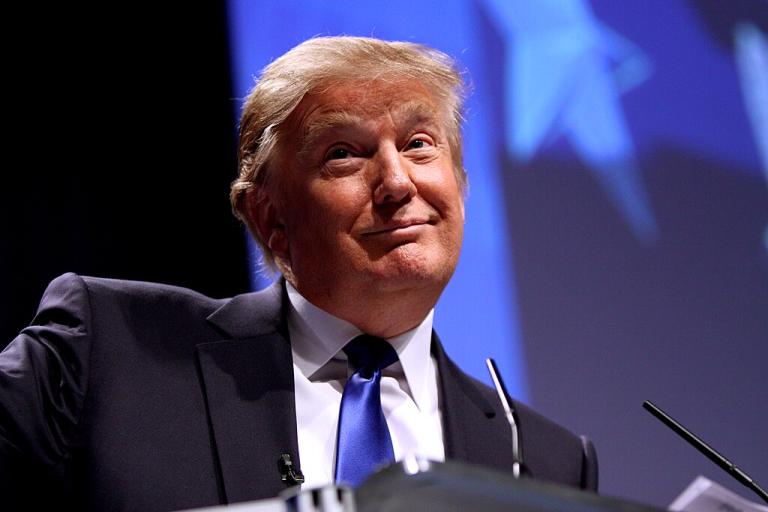He is trying to account for the Trump phenomenon, both why, despite everything, he has so many dedicated supporters. And why he inspires so much visceral hatred from his opponents.
Put simply, Gurri argues that the elite expect to run things. But they haven’t been doing a very good job. When to their surprise the iconoclastic rude and crude Donald Trump was elected president in 2016, they realized that they were not controlling the country anymore. He was elected because so many Americans no longer trust the elite establishment.
In this climate, Gurri agrees that democracy is threatened, but not because Trump is an authoritarian. But because the elite, as its contempt for Trump broadens into contempt for the ordinary Americans who elected him, is turning against the ideals of representative democracy.
According to Gurri,
The importance of Trump isn’t Trump. He is what philosophers call an epiphenomenon—a surface symptom of a deep and previously hidden malady. Trump appears to act as a sort of funhouse mirror on which the progressive elites who run most institutions, including the federal government, see themselves reflected in the most monstrous and frightening light. The malady now exposed is this: the elites have lost faith in representative democracy.
This turn against democracy on the part of the elite is manifested in the elite’s “visceral contempt for voters.”
The undisputed champion in this sport is Hillary Clinton, whose “basket of deplorables” seemed like the supreme expression of aristocratic disdain for the peasantry until it was exceeded by her recent call, in the spirit of the Khmer Rouge, for “formal deprogramming” of Trump supporters. Not too many years ago, such abuse of ordinary voters by a politician who once led her party would have been a cause of mass astonishment. Today, it’s just another voice in the choir. President Biden, for example, has accused those loyal to Trump of “semi-fascism.” These enemies within “promote authoritarian leaders and they fan the flames of political violence,” the president holds.
And if the citizens who support Trump are “semi-fascist,” or even “fascists,” as I have heard them described, then they must be harshly dealt with. To be sure, the elites think of themselves as fighting to protect democracy, but Gurri notes, they tend to say they want to protect “our democracy.” That is, the democracy that belongs to them, the democracy that they have controlled.
The implications are clear. Not only Trump, but the nearly 75 million Americans who voted for him, must be silenced and crushed. To save democracy, it must be modified by a possessive: “our democracy.” Only one side of the political divide has legitimacy. The progressive elites and their Democratic allies must rule in perpetuity since any defeat entails the triumph of fascism. Given their criminal and subversive tendencies, Republicans and their ilk must be smothered under the heavy hand of the state. Dissenters to the progressive creed of identity should be treated as domestic terrorists. Disfavored opinions—about Russia, about Hunter Biden, about Covid-19—must be barred from the prestige media and censored in social media. Noble lies must be told by scientists and intelligence experts. In “our democracy,” the ideal election is a choice of one: Trump must be knocked off the ballot. He should be investigated, impeached, prosecuted, not just once or twice but as many times as it takes to destroy him forever.
Ironically, when the elite does this, that inflames ordinary citizens against them even more and intensifies their support for Trump.
The public, we saw, deeply mistrusts the established order. In this context, Trump is once again an epiphenomenon: a club in the hands of an alienated public, with which to bash the elites and their unresponsive institutions. . . .We should never think of Trump’s vulgarity and weirdness as personal attributes. They are political signals. It’s his way of saying, “I am not them,” of standing apart—while making rude noises—from the petrified dignity of elite politicians.
Every attack validates his stance. . . . The frenzied assaults by institutional forces give him an air of authenticity. He looks, to the public, like a true agent of revolt.
What do you think of this analysis?











